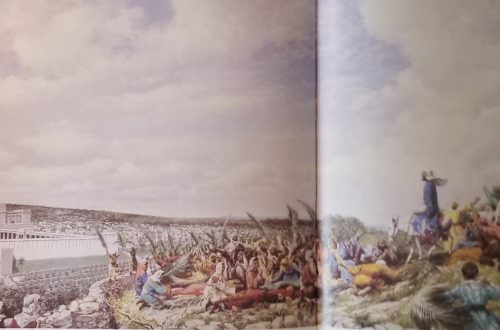Consuming Cravings
More is always better, right? And different is always fun and fabulous, don’t you think?
More is always better, right? And different is always fun and fabulous, don’t you think?
I might never admit that to you over a cup of coffee. But I live like it’s true. Every time I shout from my closet, “I have nothing to wear!” I act like new is fashionable. Each time I pine for that patterned chair perfectly suited for our living room, I live like more is better. And whenever I start planning for the next life stage, new car purchase, or home down payment, I tell myself that something different will be more fun.
What I call preparing for the future or a little dose of fabulousness, God calls discontentment. It’s one of the trickier sins—easy to hide and even easier to deny. But lately I’m learning just how serious God sees this issue.
In Numbers 11 God’s people tumble into this trap. After 10 chapters of obeying God, moving forward, even celebrating Passover, Israel starts craving more than the wilderness affords them. It’s year 2 of the journey, and they’re ready to move on. No more manna. No more tents. No more dust storms. They want more.
And so a few among them “crave a craving.” That’s how the Hebrew describes the rabble that stirs up Israel to cry out against Moses and ultimately against God. The downward spiral that ensues looks way too much like my own life.
Riveted by their desire for meat, they cry out. They romanticize Egypt where they ate free fish, cucumbers, melons, leeks, onions, and garlic—things slaves might have smelled but seldom tasted. They recount their present troubles, how their souls are drying up. And finally they ridicule God’s provision saying, “There is nothing all but this manna to look at” (Numbers 11:6).
They’re not crying for free food. They get that every evening when the manna appears with the dew. They want more, better, different. And far too often, I do too.
Discontentment—God describes it as a rejection of his presence and purpose (Numbers 11:20). This lack of faith distorts our perspective and prompts us to deny God’s provision and demand more. And if allowed to go unchecked, it will destroy us. That’s what happened in Israel as quail rained from the sky and the people gorged themselves before a plague broke out (Numbers 11:31–35).
God wants us to trust him with bread and water just as much as with steak and wine. But we can’t do it on our own. Paul said, “I have learned the secret of facing plenty and hunger, abundance and need. I can do all things through him who strengthens me” (Philippians 4:12–13).
Paul’s confession shouldn’t lose its ring when we consider contentment. It should give us hope. Apart from Christ, I will live for a blouse, patterned chair, or SUV. But with him, I will press on in his righteousness and promised resurrection (Philippians 3:8–12). Now that’s worth living for, don’t you think?



2 Comments
Suzanne
Wise Words
Amanda,
I love the way you carefully expose the subtle ways discontentment harass our lives and steal our peace.
One of the concepts I've been considering lately is how to expose allareas of sin in my life, and the subtleties of discontentment seems emerge at the forefront! And it robs us of the peace and joy that God wants to bathe us in, not because things are perfect, but because they are not, and He is enough! I have to rediscover in each circumstance that my joy is only in Him.
Thanks for the insights.
Amanda DeWitt
Suzanne,
You made a great
Suzanne,
You made a great point – discontentment plagues us in every season. It seems I learn contentment right before my circumstances change. Then I must learn to trust God anew as I enter the next season or life-stage. May we, like Paul, learn contentment admist our ever-changing lives.
Blessings,
Amanda